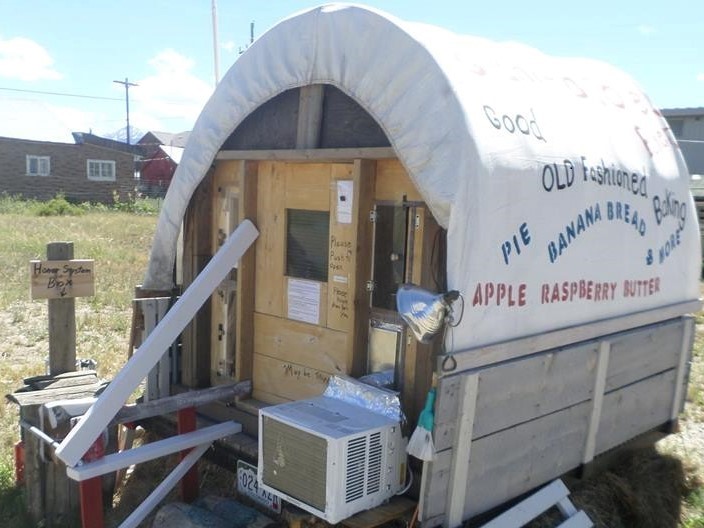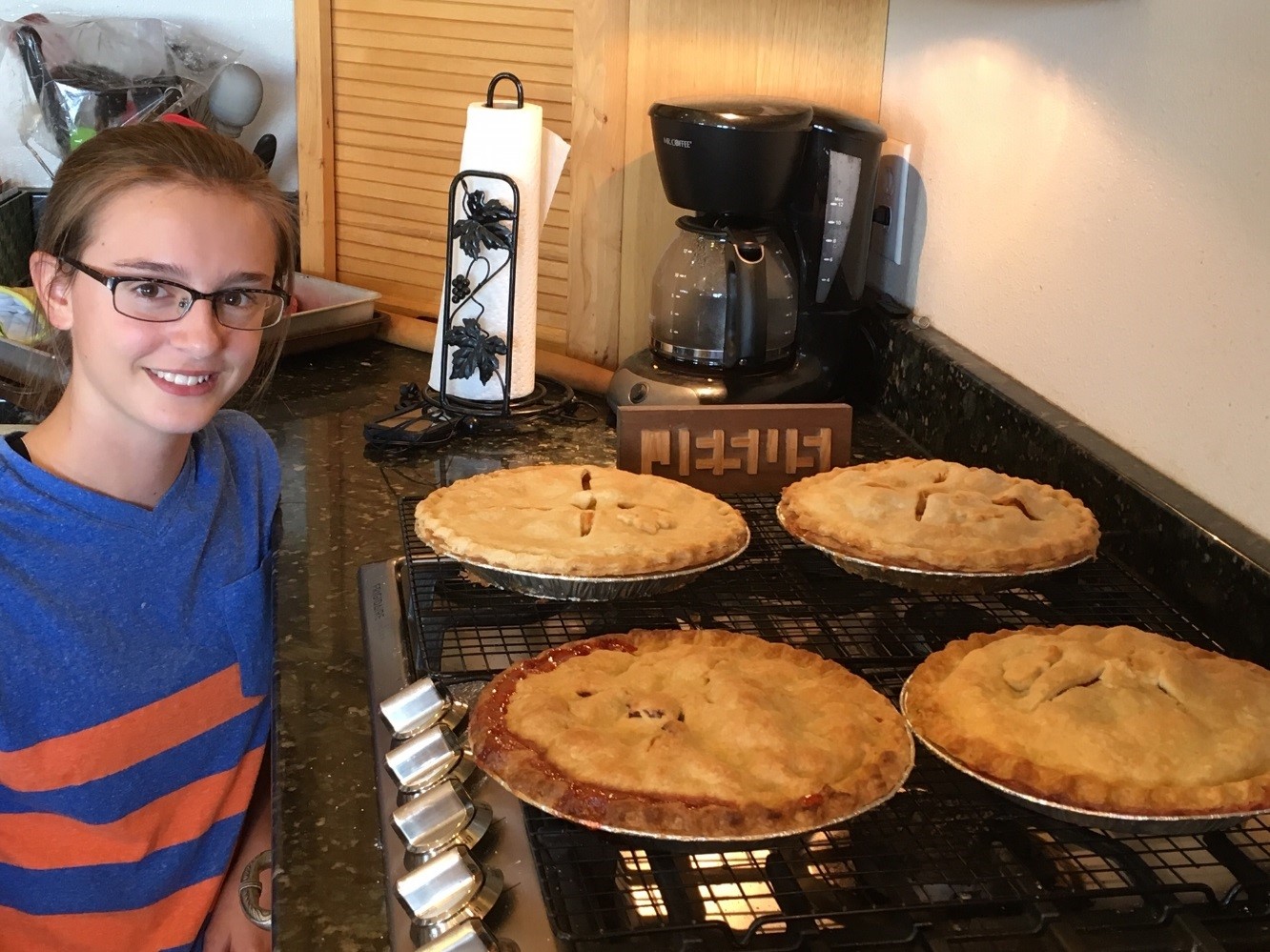Home Baking Law Gives Rise to New Cottage Businesses
Nebraskans with a special recipe for baked goods or other confections might be holding the formula for one of America’s next great food businesses.
That’s thanks to the recent enactment of a new law, supported by the Platte Institute, which expands Nebraska’s cottage food law. Cottage food laws exist in most states, and generally exempt producers of foods with a longer shelf life from the requirement to make their products in a commercial kitchen. Cottage foods include items like breads, cookies, jams, and jellies.
Nebraska is already known as a leading food-producing state, but until now, home-based food producers were only allowed to offer their products at farmers markets. Compared to other states, that can present a challenge, with Nebraska’s many rural communities and shorter farmers market season.
State Sen. Sue Crawford’s Legislative Bill 304, signed into law by the governor on May 1, will give cottage food producers more options for selling their products. The act, also prioritized by Sen. Ben Hansen, allows cottage food producers to sell their foods from home, or even take orders online and ship their products to customers.
Cottage food producers will have to follow a few essential rules, including labeling requirements, registering with the Department of Agriculture, taking a food safety course, and having water tested from any private wells used for food production.
But Nebraska’s law will now offer significant financial flexibility for producers. While some states place an arbitrary cap on how much a cottage food business can earn without using a commercial kitchen, there will be no limit on how much income a producer can earn annually in Nebraska.
Meet five cottage food producers from different corners of Nebraska, who are now able to open their food-selling businesses:
Cindy Harper – Creative Confections, Lincoln

Cindy’s company-to-be, Creative Confections, will specialize in sugar cookies with holiday and event-themed designs, which are often in high demand during the fall and winter holidays.
But that’s also when the farmers markets in Lincoln are on hiatus.
“Without a farmers market at that time of year, I’m limited in my capacity to fulfill orders,” Cindy said.
Cindy developed her sugar cookie specialty while attending culinary school and holds a level five food manager’s permit. While she knew she could find willing customers to buy her products informally, she wanted to launch Creative Confections as an official cottage business she could run in her retirement.
“I wanted to stay within the law,” Cindy said.
That led Cindy to testify on behalf of home bakers in support of LB304 at its legislative hearing.
“There are so many opportunities out there now with the laws being changed,” Cindy said.
“Having the ability to have an Etsy store online, or something else, really will expand my horizons,” Cindy told senators at the hearing.
In the leadup to the law taking effect, Cindy plans to pass out cards at the Lincoln farmers market, letting potential customers know she’ll be ready to start her home-based business in time to take orders for the holidays.
“I’m looking forward to retirement, and having something that will help me with some extra income during those years, and something that will keep me busy,” Cindy said.
Jolene Jones – Grandma Jones’ Bakery, McCook

Jolene Jones, now living in McCook, started baking and selling banana bread when she lived in Colorado, which also has a cottage food law. Customers would pick up their orders from Grandma Jones’ Bakery at a roadside stand she designed to look like a covered wagon, which Jolene saw as a symbol of old fashioned baking on the American frontier.
When she relocated to Nebraska for family reasons, though, her business had to mostly sit on hold due to the more restrictive state law. Being limited to McCook’s farmers market made it challenging for Jolene to establish a consistent customer base.
“The farmers market is from eight until noon on Saturday at the Sears parking lot, which is a real problem for some customers, as I had quite a few people tell me they can’t make it there,” Jolene said.
Still, the venue provided a chance for Jolene to conduct market research and find a new niche: no sugar-added baked goods.
“Customers would walk past, and they would say ‘well, we can’t buy anything because I can’t have this in my diet.’ And I said, okay, let me do some tweaking, maybe I can come up with something you can buy,” Jolene said.
Now, no sugar-added cinnamon twist bread and peanut butter cookies have been added to the Grandma Jones’ Bakery product line, along with her signature banana and pumpkin breads.
With LB304 becoming law, Jolene says Grandma Jones’ Bakery will have more flexibility to take orders and deliver products to customers on their schedule. The business will have an opportunity to be profitable in a way that would have been difficult for a stand-alone bakery operating from a commercial kitchen.
“You’re selling your product, you get some customers going, you find out what your customer base is. Then you can get the money to try to do something differently on a commercial level,” Jolene said.
Darren Addy – Kraken Coffee Roasters, Kearney

While many cottage food producers make baked goods, there are also other non-perishable food items allowed under the new law.
“I believe that it has the potential to bring more than a little economic stimulus to Nebraska and Nebraskans in a number of ways, many of which we may not have even imagined yet,” said Darren Addy from Kearney, whose own aspiring cottage enterprise, Kraken Coffee Roasters, will sell freshly roasted coffee ready to brew, and whole coffee beans.
“Roasting coffee for family and friends over the years has taught me how many people don’t realize just how good real, freshly-roasted, coffee tastes,” Darren said.
While roasted coffee doesn’t spoil, it does lose flavor and aromatics over time. Darren thinks that will give him an advantage over most commercial coffee, which must work its way through a retailer’s warehouse and distribution process before making its way to the purchaser’s home or office.
Darren said getting the business off the ground would have been financially prohibitive if he had to go through all the same steps as a restaurant or food business that sells perishable foods.
“It would have been somewhat easier to jump through the hurdles if I was based from a food truck or trailer, but the expense of obtaining, outfitting, licensing, and insuring was a disincentive to getting started,” Darren said.
Now, thanks to LB304, Darren will soon be selling Kraken Coffee at Kearney-area farmers markets and online at KrakenCoffeeRoasters.com.
“My coffee will have a ‘Roasted On’ date on every package, and I’m hopeful that my customers will taste the ‘Just Roasted’ difference for themselves and become repeat customers.”
Michelle Ware – Devil’s Food Cakery, Eagle

Michelle Ware, a former Air Force criminal investigator now living in Eagle, Nebraska faced scheduling and logistical obstacles to launching her custom cake business, Devil’s Food Cakery, from a farmers market setting.
With previous experience as a cake decorator, she was looking for a way to turn a hobby of making cakes into the beginnings of a small business.
Michelle put her investigation skills to use in exploring Nebraska’s laws for home bakers, and was “pretty devastated to learn about the limitations,” in the state’s cottage food law.
The Eagle farmers market is only held on weekdays, when Michelle needs to be at her fulltime job, and the nearby Lincoln farmers market had higher registration fees, along with other practical constraints for selling custom cakes, including a prohibition on taking orders for future dates.
“I have to come to the farmers market with pre-designed cakes hoping somebody wants the specific flavor I made that day, and wants to carry it around the farmers market. It’s not like it can sit in their car, it’s going to melt,” Michelle said.
Then, if no one at the farmers market buys the pre-made cake, the cost of investing in the venue can be a total loss.
“The more I looked into it, the more barriers I kept coming up against.”
With the passage of LB304, Devil’s Food Cakery can have a slow and steady start, which Michelle hopes to scale up into a brick-and-mortar location someday.
“I’ve just been reaching out to everybody I know that bakes and kind of getting them involved and letting them know…this really alleviates a lot of that stress and financial burden,” Michelle said.
“I can be a legitimate business operating out of my home.”
Haylea Carnine – Good News Gourmet, Angora

15-year-old Haylea Carnine lives on a ranch in the Nebraska Panhandle. Pocket money can be harder to come by when going into town for a part-time or babysitting job means commuting to Alliance, which is seventeen miles each way.
Fortunately, with support from her family and members of her church, she’s found a way to be self-employed. Haylea’s cottage food venture, Good News Gourmet, takes orders through Facebook, which has helped her to find a customer base hungry for gluten-free bread and pies.
Haylea tries to price her products so that a good day of sales earns her $8-10 an hour.
“I like to home bake, because I’m my own boss right now, sort of,” Haylea says with a laugh.
Haylea says preparation for gluten free bread is different since, “it’s a really wet dough, because there’s no gluten in it, and the gluten is what holds it together to make it, like, stretchy…so it’s a little bit harder to work with.”
She often spends a long day in the kitchen on Saturday preparing baked goods, and delivers to her customers on Sunday.
“I sold a loaf to a lady, and she only has one gluten-free person in her family, but they finished the entire loaf, in like, the same day,” Haylea said.
Before Haylea and her mom, Cris, heard about the debate over LB304, they didn’t know it was technically against the law for Haylea to sell her products direct to customers.
After learning about the state’s requirement that cottage foods be sold only at farmers markets, Haylea gave her best shot at selling at the Chadron farmers market, which is over an hour away. Besides a sizeable investment for gas and a space rental, Haylea found the farmers market to be more hit-or-miss than taking orders from home.
“It went okay, but there weren’t very many people there, and we didn’t sell very much,” Haylea said.
Haylea brought $110 worth of baked goods, but only sold $40.
With LB304 set to take effect later this year, Good News Gourmet can take online orders, while being on the right side of the law.
“I would really like to continue advertising and delivering. It’s more of a guaranteed kind of thing than the farmers market,” Haylea said.
